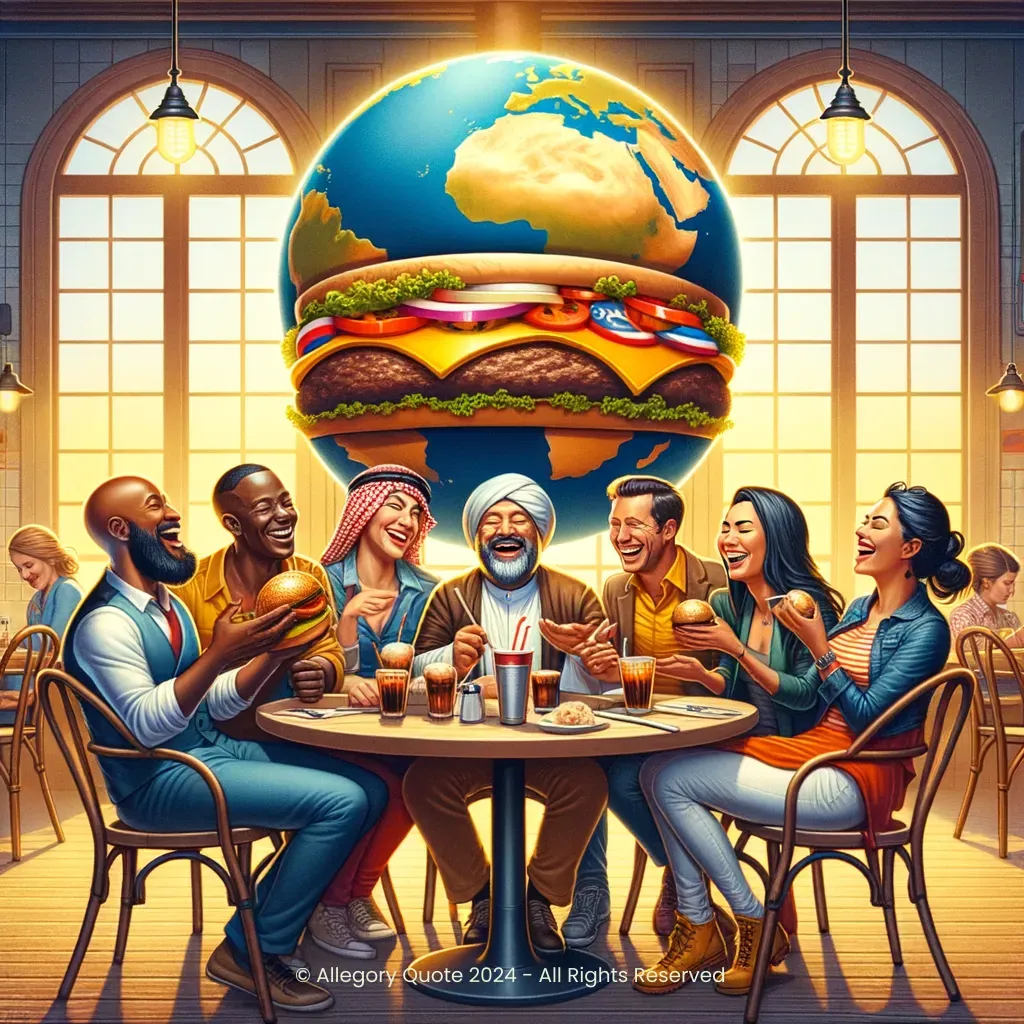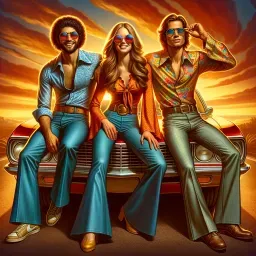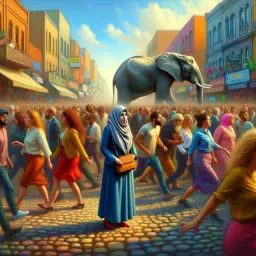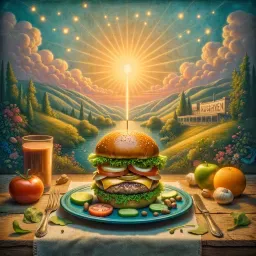”You know what they call a Quarter
Pounder with Cheese in Paris?“

0
0
0
0
- Meaning
- The phrase implies a humorous cultural observation about language and food. It reflects on English-classic discrepancies and highlights how cultural differences can lead to amusing situations, making one consider the subjective nature of language and how it influences our daily experiences.
- Allegory
- The elements in the image represent the essence of the phrase by illustrating the joy that comes from cultural exchange around food, showing that while names may differ, the love for good food and cultural appreciation remains universal. The globe-shaped burger symbolizes the blending of cultures through culinary experiences.
- Applicability
- One could apply the meaning of this phrase by embracing cultural differences in our own lives. Whether you are traveling, working in a diverse environment, or simply engaging with people from different backgrounds, understanding and enjoying these differences can lead to more enriching experiences.
- Impact
- This phrase exemplified Tarantino's skill in blending humor with introspective cultural criticism. It has since become a quintessential quote reflecting the playful side of cultural misunderstandings, often referenced in discussions about globalization and food culture.
- Historical Context
- The phrase originates from the 1994 movie 'Pulp Fiction'. During this time, American cinema was shifting towards more experimental and bold storytelling, often reflecting on everyday life and cultural norms in a satirical way.
- Criticisms
- There have been mixed interpretations of the scene, with some arguing it trivializes cultural differences or reinforces stereotypes about American food culture. However, many defend it as a light-hearted and insightful observation on global cultural interactions.
- Variations
- Variations include similar humorous takes on cultural differences in food names across various countries, with interpretations varying based on local customs and languages. For instance, similar humor can be found in discussions of how McDonald's serves different menus in different countries, reflecting local tastes.
-

We’re gonna be like three little Fonzies here. And what’s Fonzie like? Cool.
-

Zed’s dead, baby. Zed’s dead.
-

I want you to go in that bag and find my wallet.
-

I'm sorry, did I break your concentration?
-

Bring out the gimp.
-

I’m gonna get medieval on your ass.
-

I just shot Marvin in the face.
-

Say 'what' again. I dare you, I double dare you!
-

This is a tasty burger!
-

I love you, Honey Bunny.
-

Be cool, Honey Bunny.
No Comments